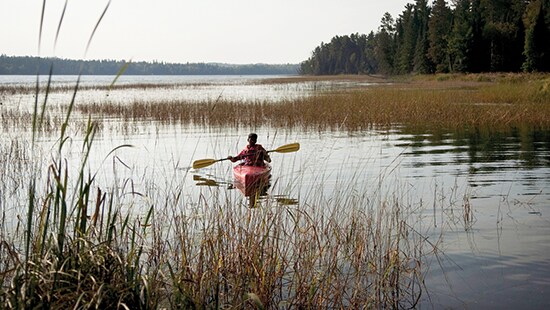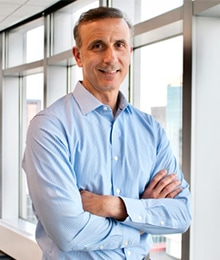If We Want to Protect Our Planet, It’s Time to Take Our Efforts to the Next Level

It’s one of my favorite times of year.
Why? In addition to the summer weather we’re enjoying in North America, we just launched Ecolab’s 2018 sustainability report, “Accelerating Meaningful Change.”
Each year, our sustainability report is an opportunity for us to celebrate our environmental progress both in our own operations and in our partnership with customers around the world, as we help them reach their sustainability and operational goals.
But it’s also an opportunity to reflect on our collective work to drive positive environmental change. And this progress is crucial. In 2018, we continued to see the dire impact of resource constraints and climate change, from wildfires in California to record temperatures in Japan and the Arctic Circle.
These reports can leave us feeling helpless and discouraged. But we must remember that we’ve also seen incredible gains in the way we address the impact that growing populations and industry have had on our planet.
To give a few examples: Renewable energy prices continue to go down. Electric vehicles are on the rise. Global companies are banding together to combat plastic pollution.
With a presence at nearly 3 million customer locations in more than 170 countries and 27,000 sales-and-service associates on the ground working with a wide range of industries, Ecolab is uniquely positioned to see these positive developments up close.
Our vantage point also has given us insight into the opportunities for improvement that surround us every day. We know that by partnering, we can create positive change together through solutions both big and small.
So, how can we start working together?
First, we need to acknowledge that the reality of how we use natural resources is changing and look at the ways we can adapt our practices accordingly. For example, did you know that only 3% of industrial water is recycled? This statistic is frustrating, but it also highlights opportunities for improvement. And we need to get started as soon as possible.
Second, we need to solve issues using a context-based approach. Ecolab conducted a survey in partnership with GreenBiz, which found that 75% of companies said they had water goals in place – but 82% of those companies lacked the tools and expertise to achieve them. This leads to what we call “the execution gap,” which is the disconnect between the goals corporations set and the ability to achieve these goals at a facility level. By using tools like the Ecolab Smart Water Navigator, we can share solutions to help save resources at the facility level.
This leads me to my final suggestion: We need to start using the tools and resources we already have at our disposal and think of new ways to apply them to challenges. Here’s an example: Using Ecolab’s water management expertise, we’ve collected insights into how to different industries use water and can track current trends and best practices. We use this data to help our customers identify areas to update their water management practices to conserve resources and lower costs.
Our latest sustainability report showcases the technology and expertise at our disposal to move the needle on sustainability goals while achieving business objectives. A few of the highlights include:
- Through a six-year partnership with Ecolab, global food and agriculture company ADM implemented more than 200 projects to save 2.3 billion gallons [8.7 million cubic meters] of water and $28.3 million each year.
- A global hotel chain achieved significant annual savings of 417 million gallons [1.6 million cubic meters] of water and 28.3 million pounds [12,800 metric tons] of CO2 emissions by deploying solutions in their laundry and housekeeping processes.
These partnerships lead to exponential results – not only are we helping each other, but we can learn about and uncover new opportunities to improve across every industry.
We have a challenge ahead of us, but businesses can play a key role in reversing the effects of climate change. Let’s work together and make a difference.


